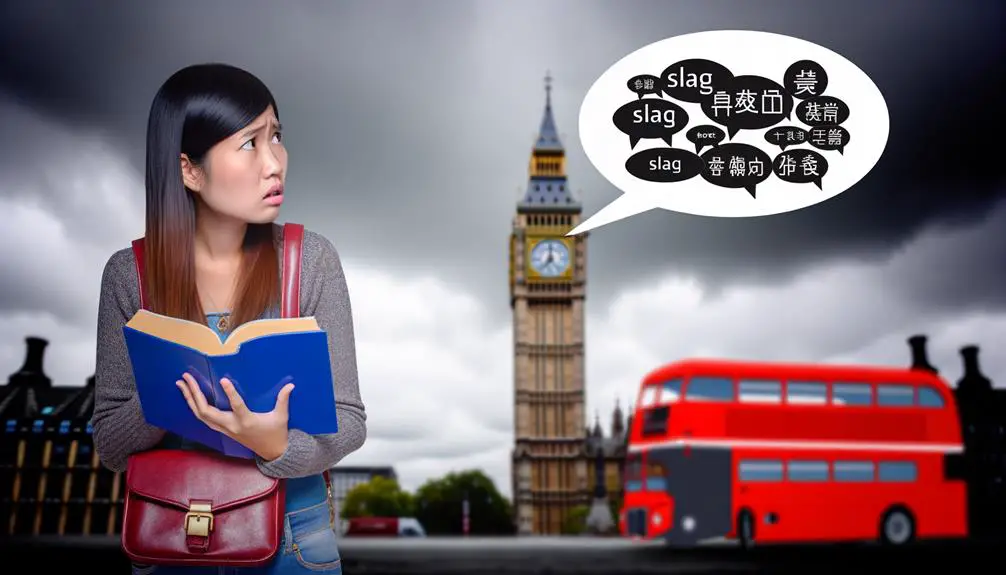In British slang, 'slag' carries significant weight, reflecting deep societal and cultural shifts. Historically, it's a product of industrial and social evolution, emerging as language adapted to express changing class dynamics and identity. Nowadays, its interpretation hinges on context—often used derogatorily to criticize someone's sexual behavior, it's also been reclaimed in some circles, challenging dominant cultural narratives. As regional dialects shape its connotations, digital platforms and music lyrics propel 'slag' across borders, constantly reshaping its meaning. Understanding 'slag' reveals layers of British cultural and social discourse, hinting at a rich tapestry of language evolution that continues to unfold.
Historical Origins
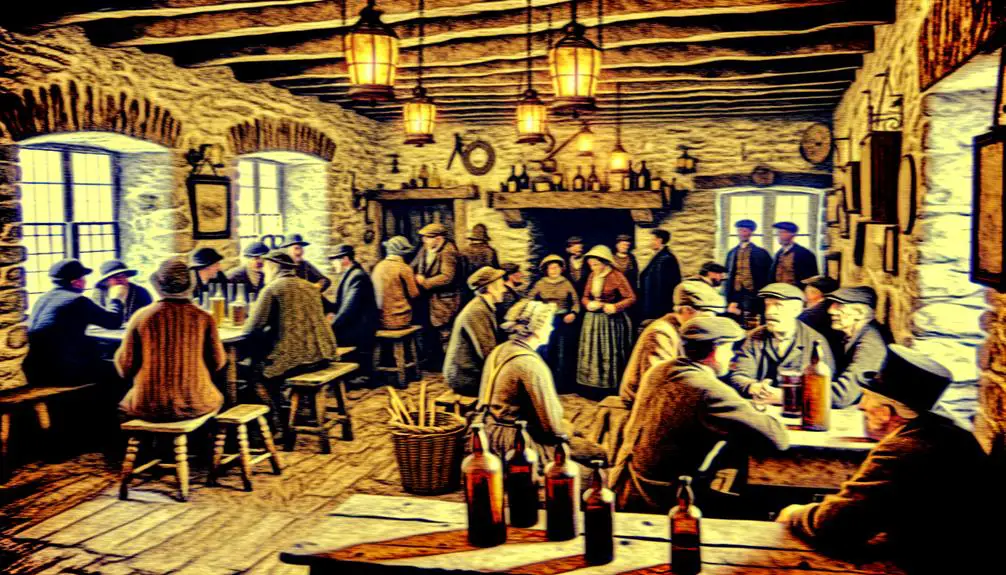
The evolution of British slang traces back to the dynamic interplay of historical events, social changes, and linguistic creativity, deeply embedding itself in the fabric of British culture. You've likely noticed how these colloquial terms reflect more than just a casual way of speaking; they're a mirror to the times and the shifts within society. One pivotal period in this linguistic evolution was the Industrial Revolution. The industrial roots of Britain, with its booming factories, burgeoning urban centers, and the migration of populations, provided fertile ground for the evolution of a distinct slang vocabulary.
As workers from diverse regions converged in industrial towns and cities, they mixed and mingled, bringing together various dialects and linguistic traditions. This melting pot of languages and accents catalyzed the creation of new words and phrases, which then seeped into the broader lexicon. It's in these settings that you can trace the genesis of many slang terms still in use today.
This linguistic evolution wasn't just about new words; it reflected the changing social landscapes, the class dynamics, and the collective experiences of the people. Slang became a way for individuals to assert their identity, forge community bonds, and navigate the rapidly changing world around them.
Modern Slang Usage
While historical shifts have shaped slang's development, it's in the digital domain that we've seen its usage and proliferation transform dramatically, reflecting and adapting to modern life's complexities and nuances. You're witnessing language evolution at its most rapid, driven by the internet and social media platforms where new words and phrases can go viral overnight. This isn't just about new words entering the lexicon; it's about how these terms reflect deeper cultural shifts and societal trends.
You see, as communities across the globe become more interconnected, slang becomes a dynamic interface, blending languages and cultures. It's not just about being cool or in-the-know anymore. Slang now carries the weight of identity and belonging, signaling not just where you're from but also where you stand within the cultural zeitgeist.
Moreover, the digital domain has democratized language creation, allowing anyone with an internet connection to contribute to the ongoing story of our language. This means you're part of this evolution, whether you're actively coining new terms or simply using them. The richness of modern slang, then, lies not just in its ability to adapt and survive but in its power to unite and define us, capturing the essence of our times.
Gender and Sexuality Implications
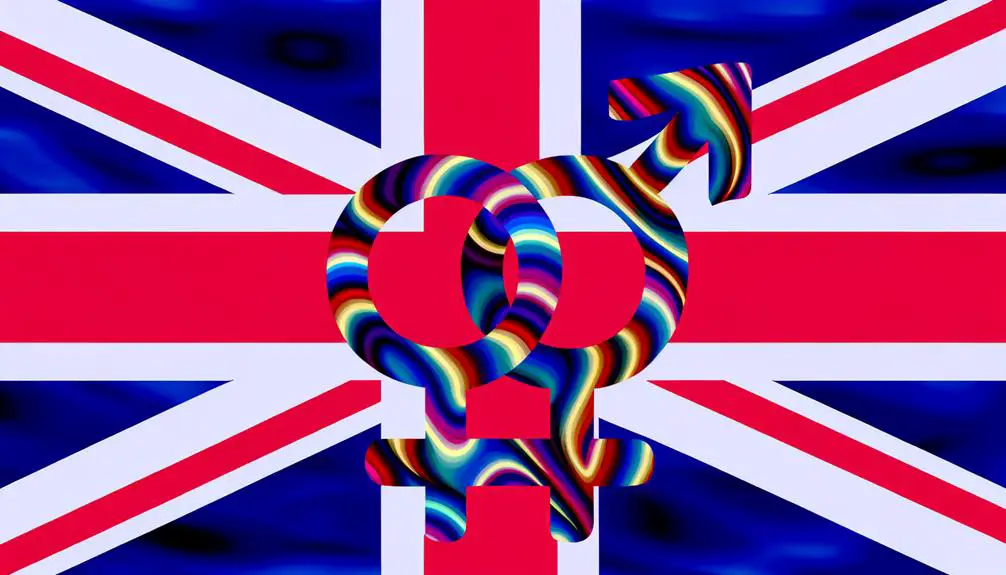
As we explore the world of gender and sexuality, it's apparent that slang plays an important role in shaping and expressing identities within these communities. The term 'slag' in British slang, while originally derogatory, has been reappropriated by some as a means of challenging traditional norms and redefining cultural perceptions. Here, the implications of slang usage extend far beyond casual conversation, highlighting the fluidity and diversity of identity expression.
- Reclamation and empowerment: Individuals and groups within the LGBTQ+ community have reclaimed derogatory terms, transforming them into symbols of strength.
- Fluid identities: Slang adapts to the evolving nature of gender and sexuality, offering nuanced ways to express complex identities.
- Cultural perceptions: The way slang like 'slag' is perceived and used can reflect broader societal attitudes towards gender and sexuality.
- Community and belonging: Shared slang fosters a sense of community and belonging among marginalized groups, providing a common language for solidarity.
- Resistance and critique: Slang serves as a tool for critiquing and resisting dominant cultural narratives about gender and sexuality.
Understanding the implications of slang within the worlds of gender and sexuality reveals its power as a vehicle for identity expression and cultural critique.
Regional Variations
Exploring regional variations, you'll find that slang's meaning and usage can greatly differ across the UK, reflecting local cultures and histories. Dialect differences play a significant role in this variation, shaping not just the pronunciation but also the connotations and implications of certain words, including 'slag'. In some areas, what might be considered offensive in one city is used in a more benign, even affectionate manner in another.
This linguistic acceptance of slang terms varies not just from region to region but also within communities, often influenced by historical social structures and local identities. For instance, industrial regions with their own unique histories and social fabric might adopt slang terms that resonate with their collective experiences, giving these terms a different shade of meaning compared to their usage in more urbanized or rural areas.
Understanding these regional variations requires a thorough exploration into local dialects, listening to the stories they tell, and appreciating the diversity of the English language across the UK. It's a reminder of the dynamic nature of language, constantly evolving and adapting to the nuances of human interaction and cultural identity.
Controversy and Criticism
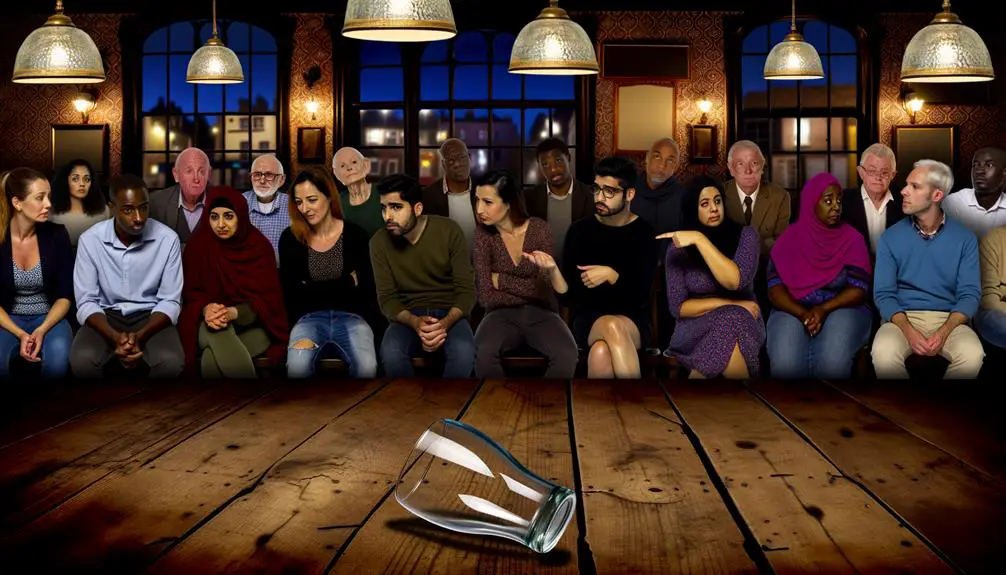
Delving into the realm of slang, it's crucial to acknowledge the controversies and criticisms that have arisen over its use and acceptance in various social contexts. While slang enriches language with vibrancy and cultural depth, its impact isn't always positive or straightforward. Here's a closer look at the nuanced debate:
- Legal implications: In certain contexts, slang terms can blur the lines of legal discourse, complicating matters of interpretation and enforcement. This ambiguity can lead to misunderstandings in legal settings, where precision is paramount.
- Educational relevance: Critics argue that the proliferation of slang can undermine formal language learning and literacy, especially among younger generations. Educators face the challenge of balancing linguistic evolution with the need to teach standard language skills.
- Generational divide: Slang often marks a cultural and communicative gap between generations, leading to misconceptions and sometimes unintended disrespect.
- Exclusionary tactics: The use of slang can create in-groups and out-groups, potentially alienating individuals who aren't familiar with the specific language cues.
- Cultural appropriation: The adoption of slang from marginalized groups by mainstream culture can lead to accusations of cultural appropriation, erasing the origins and significance of these expressions.
Understanding these controversies requires a balanced perspective, recognizing both the enriching and problematic aspects of slang in modern communication.
Media Influence
You've seen how British slang evolves, but let's consider how media molds its trajectory.
TV shows don't just reflect dialects; they amplify certain phrases that then ripple through society, becoming commonplace.
Similarly, social media and music lyrics aren't mere vessels of expression; they're powerful catalysts for linguistic change, pushing slang from the fringes into mainstream conversation.
TV Show Portrayals
How do TV shows shape our understanding of British slang, weaving it into the fabric of global pop culture? Through character development and narrative influence, these programs offer a lens into the nuanced world of British vernacular. It's not just about adding local color; it's about creating a truthful, vibrant representation of British culture that resonates worldwide.
- Character development becomes richer, as slang adds depth and authenticity.
- Narrative influence guides viewers through the cultural contexts behind the slang.
- The emotional resonance of certain phrases enhances viewer connection.
- Cultural export allows global audiences to grasp nuanced British identities.
- Educational aspect offers an informal learning experience about language variation.
This analytical approach underscores the significant role TV shows play in popularizing and preserving British slang within international discourse.
Social Media Usage
In today's digital age, social media platforms have become pivotal in spreading British slang, shaping how these expressions are understood and used globally.
Through hashtag trends, specific phrases or words gain momentum, often propelled by the influencer language that dominates platforms like Twitter, Instagram, and TikTok. These influencers, by virtue of their vast followings, play a key role in normalizing slang within everyday conversation, consequently embedding these terms more deeply into the lexicon of their audience.
As you navigate through your social media feeds, you're not just passively consuming content but actively participating in the evolution of language.
The rapid spread and adoption of slang via social media challenge traditional language boundaries, highlighting the dynamic nature of linguistic exchange in the 21st century.
Music Lyric Impact
Just as social media platforms have amplified the spread of British slang, the lyrics of popular music songs also play a significant role in shaping and disseminating these expressions. The intersection of genre influence and rhythmic evolution within music has seen a dynamic shift in how slang is absorbed and reflected back into society.
- Genre influence dictates the type of slang used; different music genres celebrate unique expressions.
- Rhythmic evolution has made slang more catchy and memorable.
- Lyrics act as vehicles, transporting slang across global audiences.
- Musicians' regional dialects introduce local slang to a broader audience.
- Repetition in hooks and choruses embeds slang phrases into listeners' vocabularies.
Understanding this impact offers insight into the fluid nature of language and cultural exchange.
Social Media Dynamics
As you observe the landscape of social media, it's evident how platforms catalyze the rapid evolution of slang, morphing terms with astonishing speed.
Your conversations online aren't just casual exchanges; they're shaping the very fabric of contemporary British slang.
This interplay between viral trends and dialogue highlights the profound impact of digital spaces on language transformation.
Viral Slang Evolution
Through the lens of social media dynamics, we've witnessed an unprecedented evolution in slang, where viral trends rapidly transform everyday language. This shift isn't just about new words popping up; it's about deep language adaptation and reflects significant cultural shifts. Here's how you can appreciate the depth of this evolution:
- Rapid dissemination: Viral slang spreads at lightning speed across platforms.
- Cross-cultural exchange: Social media bridges geographical gaps, mixing slang from diverse cultures.
- Community identity: Specific groups often adopt slang to signal membership.
- Evolving meanings: Words can quickly change meaning in the digital space.
- Feedback loop: User interactions on social media platforms directly influence slang's evolution, making its study a moving target.
Understanding this dynamic offers insight into how language mirrors our changing world.
Online Conversations Impact
In the domain of social media dynamics, your every post, tweet, and comment contributes to the reshaping of modern slang and its meanings. As you navigate through the vast digital landscape, you're not just a bystander but a key player in the phenomenon of language globalization.
Your online conversations, peppered with slang, echo across borders, diluting the once rigid definitions and introducing a new era of communication etiquette. This constant exchange doesn't just enrich the lexicon; it challenges and expands the norms of how we interact.
In this interconnected world, you're at the forefront, crafting the future of language with every keystroke, reshaping how slang, like 'slag', is perceived and utilized globally.
Changing Attitudes
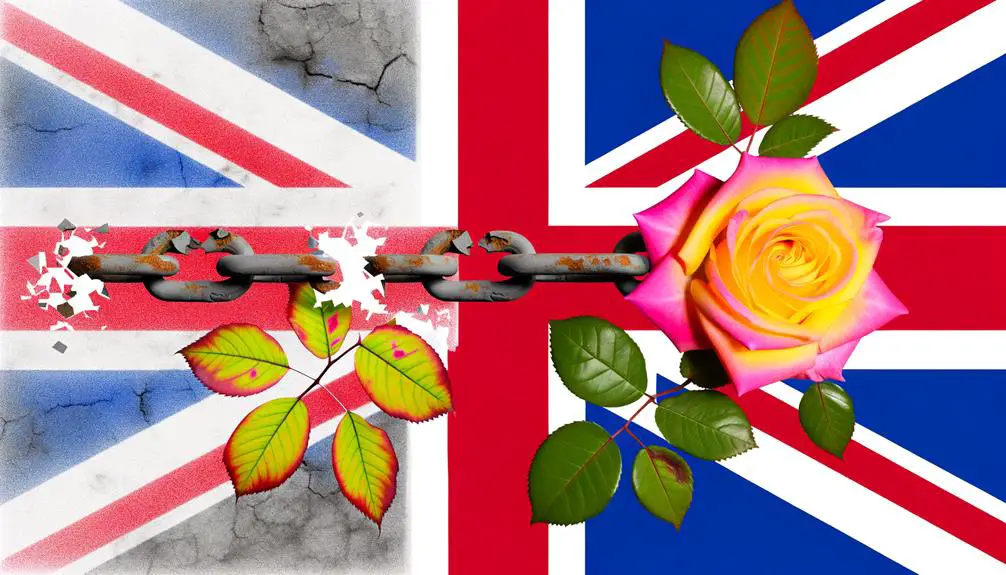
Evolving societal norms have greatly influenced attitudes toward British slang, marking a shift from disdain to acceptance in various contexts. This transformation is deeply intertwined with language evolution and cultural acceptance, reflecting a broader trend of inclusivity and diversity in communication. As slang becomes a staple in modern lexicons, it's essential to understand the dynamics behind this change.
- Language Evolution: Slang isn't static; it evolves, mirroring societal changes and technological advancements.
- Cultural Acceptance: A growing appreciation for diverse linguistic expressions has fostered a more accepting attitude toward slang.
- Media Influence: Television, movies, and online platforms have played a pivotal role in normalizing slang, making it more mainstream.
- Generational Shifts: Younger generations are often more open to incorporating slang into their everyday language, influencing older generations over time.
- Globalization: The global exchange of culture and language has led to a cross-pollination of slang terms, broadening its acceptance.
Understanding these factors is vital for navigating the complexities of modern language use. As attitudes continue to evolve, it's clear that slang, once considered the language of the underground, is now celebrated for its vibrancy and ability to capture the zeitgeist.
Frequently Asked Questions
How Does the British Slang Term 'Slag' Compare to Similar Slang Words in American English or Australian English?
You'll find that while 'slag' is uniquely British, its American parallels and Australian equivalents carry similar connotations. They reflect cultural nuances, showcasing how societies label certain behaviors or characteristics in a derogatory manner.
Are There Any Notable Public Figures or Celebrities Who Have Reclaimed or Publicly Addressed Being Labeled as a 'Slag' in a Positive or Empowering Manner?
You're exploring how celebrity reactions to being labeled as "slag" shape public discourse. While specific names are scarce, some public figures have tackled this head-on, turning derogatory terms into symbols of empowerment and resilience.
How Does the Usage of the Term 'Slag' Vary Across Different Age Groups Within the Uk, Particularly Between Older Generations and Younger, More Internet-Savvy Demographics?
You'll find that the term's use weaves through the fabric of society, highlighting a generation gap. Older folks may stick to traditional meanings, while the internet-savvy youth are reshaping its connotations, showcasing slang evolution.
Can the Term 'Slag' Be Found in British Literature or Classic Novels, and if So, How Is It Portrayed or Contextualized Within Those Works?
You'll find 'slag' in British literature, reflecting its historical origins. A literary analysis shows it's often used to critique social norms or characters, highlighting authors' insights into societal attitudes and the evolution of language.
Are There Specific Educational or Awareness Campaigns in the UK Aimed at Addressing or Combating the Negative Implications Associated With Calling Someone a 'Slag'?
You'll find educational initiatives and awareness strategies in the UK tackling derogatory terms. These efforts aim to enlighten the public about the harm such language can cause, promoting a more respectful and inclusive society.
Conclusion
In exploring the intricate landscape of 'slag' in British slang, you've journeyed from its gritty historical origins to its multifaceted modern-day usage. Remember, 'A rose by any other name would smell as sweet,' yet words carry the weight of implications, especially around gender, sexuality, and social standing.
As you've seen, regional dialects, media portrayal, and social media have all played their part in both entrenching and challenging perceptions. With changing attitudes, the future of this term hangs in the balance, reflecting broader societal shifts.

